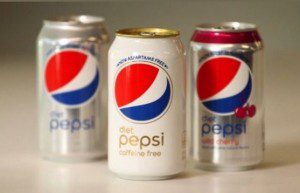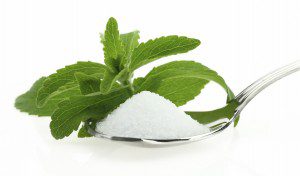Guest Writer for Wake Up World
Soda is one of the most popular beverages in the developed world, and many people are addicted to its sweet taste and fizzy texture. Not only does soda provide calories, these calories come in the form of refined sugar, namely mercury-laden high fructose corn syrup.
Diet sodas are supposed to lessen the health effects of regular soda consumption and are seen by many as a product that can be consumed in limitless quantities with very little worry. Research is showing, however, that this is not the case. [1] Even diet sodas, typically sweetened with aspartame, also correlate with increased obesity trends in those who consume them on a regular basis.
Pepsi has recently announced a move that will replace aspartame with sucralose (Splenda), citing consumer demand regarding the supposed health dangers of aspartame.
[pro_ad_display_adzone id=”110028″]
What Pepsi Doesn’t Understand About Splenda
Aspartame has been linked to serious health consequences for years, and these consequences are only now being made known to the public. Due to public outcry over the use of aspartame in diet foods, Pepsi has decided to replace the artificial sweetener with sucralose, a heavily-marketed artificial sweetener that many mistake for natural. [2] While sucralose does start with sugar, it goes through an unnatural process to make it free from calories and 300 to 1,000 times as sweet as pure table sugar. Simply swapping out an artificial sweetener for another one doesn’t seem to be doing much good, because even sucralose has a host of negative health effects associated with its consumption. [3]
Diet soda was originally created to combat the effects that high-sugary beverages promote, like obesity, diabetes, and other clinical symptoms of metabolic syndrome. [4] Soda manufacturers, who recognized the issue associated with refined sugar, quickly came out with an alternative to their original recipe to appease health-conscious consumers and protect their bottom line. Not only did they attract individuals watching their waistline, their expanded product line undoubtedly increased sales.
Soda manufacturers aren’t 100% concerned for public health; rather, they’re merely trying to find ways to appeal to consumer demand as a means to protect their overall profit. While there may be noble intentions from some people in the industry, the majority isn’t geared toward improving overall health.
The Best Alternatives to Artificial Sweeteners
You’re probably already aware that you shouldn’t be consuming refined sugar in any amount. Artificial sweeteners may be even worse, since they’re chemical in natural and drive weight gain much more quickly than pure sugar. Stevia is perhaps the best natural alternative to artificial sweeteners, and is being increasingly used in natural and organic “diet” foods.
The natural green powdered leaf is probably the least processed form of the plant you can get, but it’s not as popular as stevia extract.
Sugar alcohols like maltitol, erythritol, and xylitol are also excellent alternatives to sugar; however, they do provide calories and can be aggravating to the digestive system, particularly for those with digestive issues.
– Dr. Edward F. Group III, DC, NP, DACBN, DCBCN, DABFM
Article Sources:
- Qing Yang. Gain weight by “going diet?” Artificial sweeteners and the neurobiology of sugar cravings. Yale J Biol Med. 2010 Jun; 83(2): 101-108.
- Jackie Wattles. Diet Pepsi replaces aspartame with… CNN Money.
- Schiffman SS, Rother KI. Sucralose, a synthetic organochlorine sweetner: overview of biological issues. J Toxicol Environ Health B Crit Rev. 2013;16(7):399-451. doi: 10.1080/10937404.2013.842523.
- Swithers SE. Artificial sweeteners produce the counterintuitive effect of inducing metabolic derangements. Trends Endocrinol Metab. 2013 Sep;24(9):431-41. doi: 10.1016/j.tem.2013.05.005.
Previous articles by Dr. Group:
- The 9 Best Fermented Foods for Your Gut
- 14 Foods that Cleanse the Liver
- How Turmeric Keeps You Looking Young
- 7 Toxins Harming Your Brain Right Now
- Top 5 Foods for the Pineal Gland
- 6 Things You Must Know About Colloidal Silver
- The Importance of a Kidney Cleansing Diet
- The 9 Best Herbs for Lung Cleansing and Respiratory Support
- 7 Best Foods to Support Kidney Function
- Lung Cleansing With Peppermint Oil
- 10 Best Herbs for Boosting Female Sex Drive
About the author:
 Dr. Edward F. Group III (DC, ND, DACBN, DCBCN, DABFM) founded Global Healing Center in 1998 and is currently the Chief Executive Officer. Heading up the research and development team, Dr. Group assumes a hands-on approach in producing new and advanced degenerative disease products and information.
Dr. Edward F. Group III (DC, ND, DACBN, DCBCN, DABFM) founded Global Healing Center in 1998 and is currently the Chief Executive Officer. Heading up the research and development team, Dr. Group assumes a hands-on approach in producing new and advanced degenerative disease products and information.
Dr. Group has studied natural healing methods for over 20 years and now teaches individuals and practitioners all around the world. He no longer sees patients but solely concentrates on spreading the word of health and wellness to the global community. Under his leadership, Global Healing Center, Inc. has earned recognition as one of the largest alternative, natural and organic health resources on the internet.
For more information, please visit Global Healing Center.
[pro_ad_display_adzone id=”110027″]








